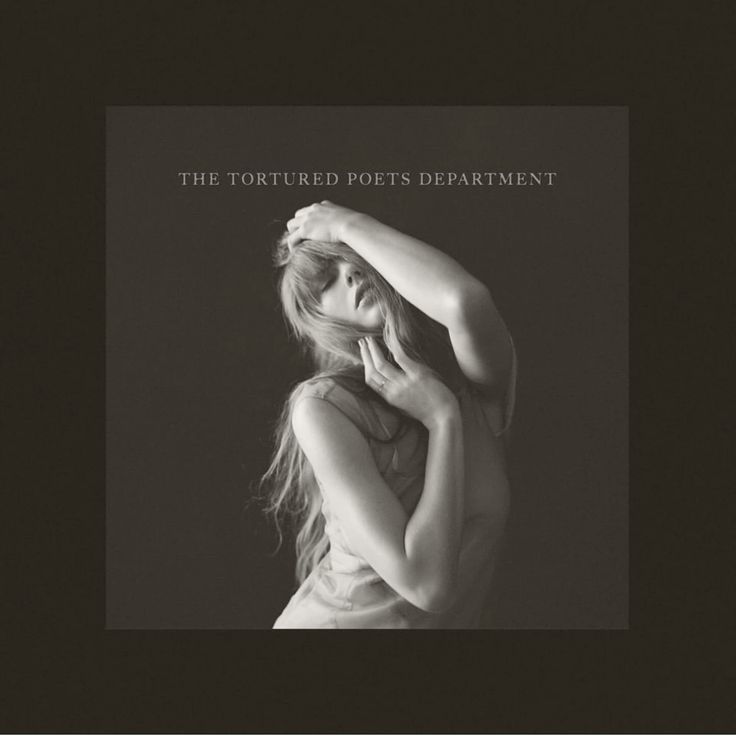“The Tortured Poets Department,” Taylor Swift’s new album, defies Swift’s usual musical style. Where her more recent albums have been upbeat, “The Tortured Poets Department” is raw and emotional, offering listeners an in-depth, personal look into Swift’s life.
The album was first announced at the Grammy Awards on Feb. 4, after Swift won Best Pop Vocal Album. Her fans—dubbed Swifties—hypothesized that Swift would release a re-recording of “Reputation” at the awards ceremony, so a new album announcement was unexpected. Nonetheless, the confirmation of new music received overwhelmingly positive feedback, with many fans counting down to the April 19 release day.
Its runtime is over two hours long, featuring 16 songs with the original release and an additional 15 songs in “The Tortured Poets Department: The Anthology” for a grand total of 31 tracks. The new album breaks the record for Swift’s longest release, which was previously held by “Red (Taylor’s Version)” with 30 songs.
Compared to its predecessors, “The Tortured Poets Department” takes on a mournful tone. When Swift released “folklore” and “evermore” in 2020, her artistry took a turn from pop-centered albums to a softer, folkier style. It’s very similar to artists such as Noah Kahan and Lizzy McAlpine, whose music also gained popularity during quarantine. However, Swift’s old lyrical style made a return in 2022 with the release of “Midnights,” which heavily incorporated pop.
With its slower tempos and mournful melodies, TTPD does bear some resemblance to Midnights (3am Edition), the extended version of the 2022 album. “The Tortured Poets Department” begins with “Fortnight,” featuring Post Malone. Swift laments over a relationship that only lasted a fortnight, while subsequently comparing it to a stay within a mental institution. The lyric “I love you/It’s ruining my life,” brings out the dichotomy between wanting to feel cared for and keeping oneself sane and healthy, so to say.
It’s almost as if Swift wrote the album while transitioning through the five stages of grief. Towards the top of the tracklist, “Down Bad” references Swift “crying at the gym,” later followed by “loml” where she fluctuates between referring to her romantic interest as the love and loss of her life, seemingly in a deep depression. “But Daddy I Love Him” hints at Swift’s country roots, describing a bargaining process where she desperately tries to convince others (and herself) that he is worth the pain his presence causes.
Intense anger pervades “Who’s Afraid of Little Old Me?” where Swift’s singing ramps up to full-out rage and screaming. Swift’s anger at having to swallow her feelings shines through as she sings “I was tame, I was gentle ‘til the circus life made me mean.” In “I Can Fix Him (No Really I Can),” she is blind to the realization that her current relationship isn’t healthy and clearly in denial.
Swift finally reaches the point of acceptance in “Fresh Out the Slammer,” which starts out slow but shocks listeners with a tonal shift in the middle of the track. Having put up with mistreatment and heartbreak for so long, Swift declares that there “Ain’t no way [she’s] gonna screw it up now that [she] know[s] what’s at stake.”
“The Tortured Poets Department” isn’t completely depressing, however. Although many of the tracks surround pivotal love interests whose relationships with Swift did not end well, several songs are more upbeat, showcasing the artist in love.
“So High School,” for example, ties back to Swift’s roots, mimicking sweet, youthful style we haven’t seen since “Fearless” and “Speak Now.” Both of these albums were released in the late 2000s, while Swift was in her teens. Similarly, “The Alchemy” has a more positive outlook on life.
Swift’s fans have hypothesized that these tracks were written about Travis Kelce, her current boyfriend who plays on the Kansas City Chiefs. The lyric “you know how to ball/I know Aristotle” from “So High School” references the playful infatuation fans have been witnessing between Swift and Kelce since the pair began dating last summer.
Some entertainment reviewers have expressed disdain for “The Tortured Poets Department,” despite positive feedback from listeners. The overarching criticisms lie with the album’s length, as some have claimed that 31 songs are an example of overproduction. Others claim that Swift’s style in general oozes overproduction, as “The Tortured Poets Department” is her 11th studio album.
However, musical greats often tend to release more albums; throughout their peak, The Beatles came out with 12 albums and countless more re-recordings and compilations. The Rolling Stones more than doubled this number, releasing over 30 albums in total. Overproduction isn’t necessarily a mark of bad quality, rather just an indicator of success. Swift has done what few music artists have been able to achieve: throughout her 17-year career, she has managed to captivate fans and audiences so that they keep on coming back for more. Not every artist has that talent.
Although Swift has not announced any new albums to follow “The Tortured Poets Department,” it’s likely that she will release “Reputation (Taylor’s Version),” a re-recording of the original 2017 version, next. Following “Reputation,” it’s unclear whether Swift’s next songs will continue to heavily feature synth and soft pop influences or introduce a new style for the artist. Either way, in keeping with current trends, Swift’s subsequent releases are certain to top the charts once more.

































Nancy • May 20, 2024 at 9:28 pm
This album is horrible. My toddler could come up with better lyrics.
very good • May 20, 2024 at 5:39 pm
love